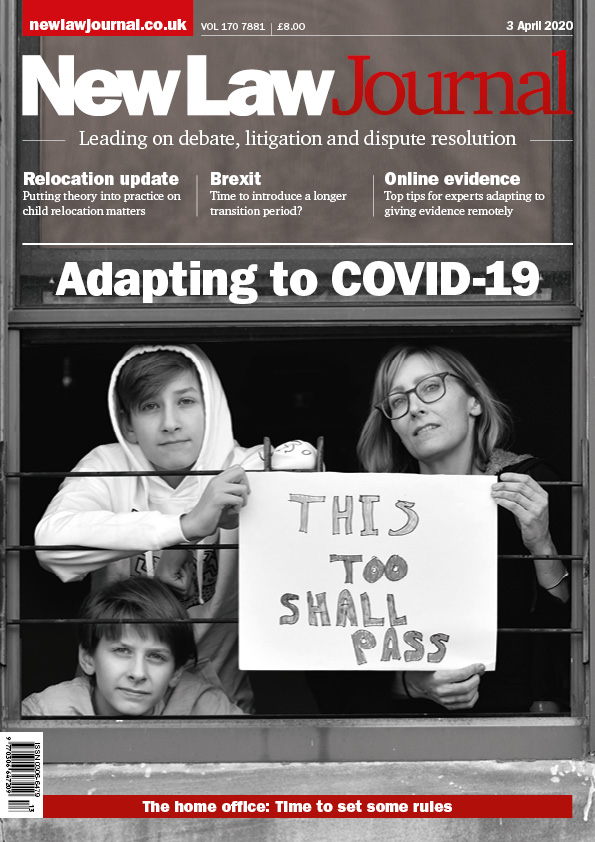THIS ISSUE

Pensions lawyers should note new guidance issued by the Pensions Administration Standards Association (PASA) to support administrators during the COVID-19 pandemic
Criminal barristers are to be paid an upfront fee of £500 by the Crown Prosecution Service (CPS) as part of interim measures to tide them over during the COVID-19 crisis
MPs are investigating whether COVID-19 and the government’s response to it are having a disproportionate impact on groups with protected characteristics
MOVERS & SHAKERS

Freeths—Rachel Crosier
Projects and rail practices strengthened by director hire in London

DWF—Stephen Hickling
Real estate team in Birmingham welcomes back returning partner

Ward Hadaway—44 appointments
Firm invests in national growth with 44 appointments across five offices
NEWS
Refusing ADR is risky—but not always fatal. Writing in NLJ this week, Masood Ahmed and Sanjay Dave Singh of the University of Leicester analyse Assensus Ltd v Wirsol Energy Ltd: despite repeated invitations to mediate, the defendant stood firm, made a £100,000 Part 36 offer and was ultimately ‘wholly vindicated’ at trial
The Police and Criminal Evidence Act 1984 transformed criminal justice. Writing in NLJ this week, Ed Cape of UWE and Matthew Hardcastle and Sandra Paul of Kingsley Napley trace its ‘seismic impact’
Operational resilience is no longer optional. Writing in NLJ this week, Emma Radmore and Michael Lewis of Womble Bond Dickinson explain how UK regulators expect firms to identify ‘important business services’ that could cause ‘intolerable levels of harm’ if disrupted
Criminal juries may be convicting—or acquitting—on a misunderstanding. Writing in NLJ this week Paul McKeown, Adrian Keane and Sally Stares of The City Law School and LSE report troubling survey findings on the meaning of ‘sure’
The Serious Fraud Office (SFO) has narrowly preserved a key weapon in its anti-corruption arsenal. In this week's NLJ, Jonathan Fisher KC of Red Lion Chambers examines Guralp Systems Ltd v SFO, in which the High Court ruled that a deferred prosecution agreement (DPA) remained in force despite the company’s failure to disgorge £2m by the stated deadline






